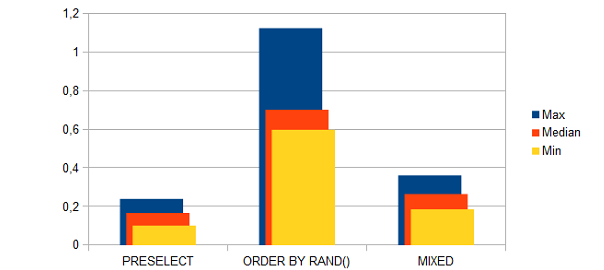A “memoized” function is a function that only calculates the return value for each combination of arguments once and returns the previously calculated value if the function is called a second time with the same arguments.
In PHP, I often see this implemented with code like this:
class ProductRepository implements ProductRepositoryInterface
{
private $products = [];
public function product($id)
{
if (! isset($this->products[$id])) {
$this->products[$id] = $this->load($id);
}
return $this->products[$id];
}
private function load($id) { ... }
}
Continue reading “Memoize Method Calls in PHP with Cache Decorators”

